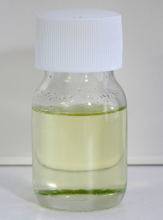Thionyl Chloride

| Physical and chemical properties | Color and odor status: light yellow to red, strong irritating odor of fuming liquid | ||
| Toxicity: Highly toxic | Flammability: non-flammable | ||
| Density: 1.64 | Volatility: Volatile | ||
| Corrosivity: Strongly corrosive | Boiling point: 78.8 | ||
| Decomposability: thermal decomposition | Stability: unstable | ||
| Melting point: -105℃ | Acidity and alkalinity: acidity | ||
| Hygroscopicity: moisture absorption | Deliquescence: easy to deliquescence | ||
| Flash point: 105℃ | |||
| Solubility: miscible with water, alcohols, amines and phenols in any ratio. | |||
| Various numbers | CAS:7719-09-7 | HS: 2812101000 | EINECS: 231-748-8 |
| Uses | Used in pharmaceuticals, pesticides and dyes industries, mainly used to produce hydrocarbophos, Sumitoxin, Kemitte, Indomethacin, Vitamin A | ||
| Hazard category | 8.2 Corrosive products | ||
| Fire-fighting measures | Hazardous characteristics: The product is non-flammable, and will release irritating and toxic fumes such as sulfur dioxide and hydrogen chloride when exposed to water or moisture. Fire fighting method: firefighters must wear acid- and alkali-resistant fire-fighting suits. Extinguishing agent: carbon dioxide, sand. Water is prohibited. | ||
| Emergency treatment | Skin contact: Take off contaminated clothing immediately, rinse with plenty of running water for at least 15 minutes, and seek medical attention; Eye contact: immediately lift the eyelids, rinse thoroughly with plenty of running water or saline for at least 15 minutes, and seek medical attention; Inhalation: Quickly leave the scene to a place with fresh air and keep the respiratory tract unobstructed. If breathing is difficult, give oxygen. If breathing stops, give artificial respiration immediately and seek medical attention. Ingestion: Rinse mouth with water, drink milk or egg white, and seek medical attention. | ||
| Packaging, storage, transportation | Packed in plastic drums and iron drums, 300kg/drum, stored in a cool, ventilated warehouse. The storage temperature does not exceed 25℃, and the relative humidity does not exceed 75%. | ||
Next product: Isophoron (Different fluorine ketone)

